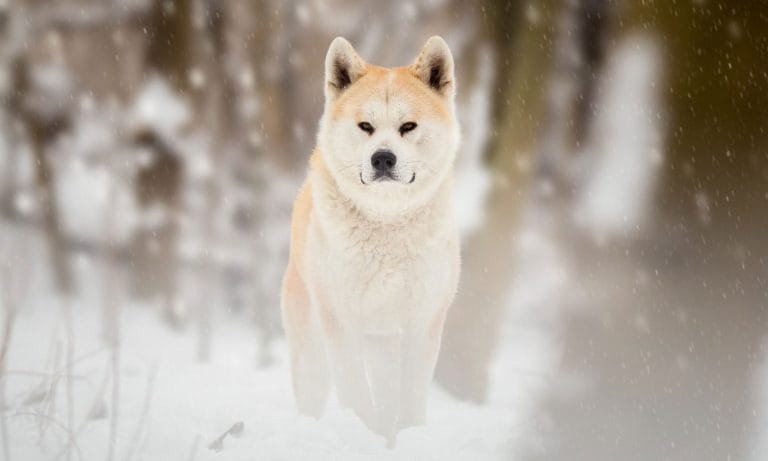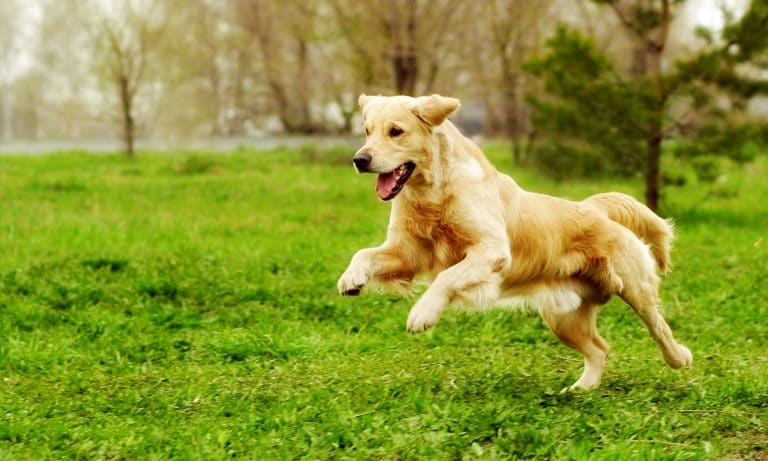Akita vs Golden Retriever

Breed Snapshot
Best For
Loyal and independent, Akitas are best for homes of any size with experienced pet parents who can provide long, daily walks and plenty of quality time. Consistent training and a committed pet parent contribute to...
Loyal and independent, Akitas are best for homes of any size with experienced pet parents who can provide long, daily walks and plenty of quality time. Consistent training and a committed pet parent contribute to a successful and loving Akita companionship.
Akita Temperament
Quiet and dignified, Akitas are loyal dogs who love spending time with their families. They’re intelligent and fairly energetic, so they’d enjoy both mental and physical activities, like going on long walks together or solving doggy puzzles. Social butterflies they are not. Akitas often feel cautious a...
Quiet and dignified, Akitas are loyal dogs who love spending time with their families. They’re intelligent and fairly energetic, so they’d enjoy both mental and physical activities, like going on long walks together or solving doggy puzzles.
Social butterflies they are not. Akitas often feel cautious around strangers. Because of their more aloof personality, they’ll benefit from extra socialization and training while growing up. Still, it’s best to supervise them closely around other pets or young children, especially once your pup is fully grown. Akitas may actually do best as the only pet in a home without small children or babies around.
Originally bred to serve as guard dogs, Akitas have a strong bite force and will monitor what’s going on in the home while they’re spending time with you. A good pup parent will provide proper training and socialization to ensure their dog knows the difference between a foe and friend.
Akita Traits

Breed Snapshot
Best For
Golden Retrievers, known for their friendly disposition, thrive on companionship and exercise. Intelligent and adaptable, these loyal dogs make ideal family pets for those who can provide lots of love and mental stimulation.
Golden Retriever Temperament
The Golden Retriever personality is naturally outgoing and eager to please. Although individual personalities can vary, most Goldens love people and social outings, thriving in homes with lively environments. Generally, Goldens are born to mingle and see everyone as a potential new best friend. Whenever they meet someone ne...
The Golden Retriever personality is naturally outgoing and eager to please. Although individual personalities can vary, most Goldens love people and social outings, thriving in homes with lively environments.
Generally, Goldens are born to mingle and see everyone as a potential new best friend. Whenever they meet someone new, they seem to say, “Hi! I am so glad we met. Do you have a ball to throw for me now that we’re friends?”
That friendly demeanor, coupled with their moderate weight and height, make Golden Retrievers excellent dogs for families with young children. However, not all Goldens are without challenges. When bringing a Golden home, cautiously introduce them to household members, especially smaller ones like children and cats, and be sure to teach small children how to behave and interact with dogs as well.
Goldens are also intelligent; they’re quick learners and easy to train. They were and are bred to be gundogs, retrieving waterfowl with their soft mouths, a characteristic that allows them to carry delicate items without applying excessive pressure. They often serve as guide dogs, therapy dogs and search-and-rescue dogs. For optimal health, Golden Retrievers need ample mental and physical exercise.
Keep in mind, though, that even the best-trained Goldens can be mischievous. So be prepared for occasional capers and learn to laugh with your dog as they “help” you unload the laundry basket.




